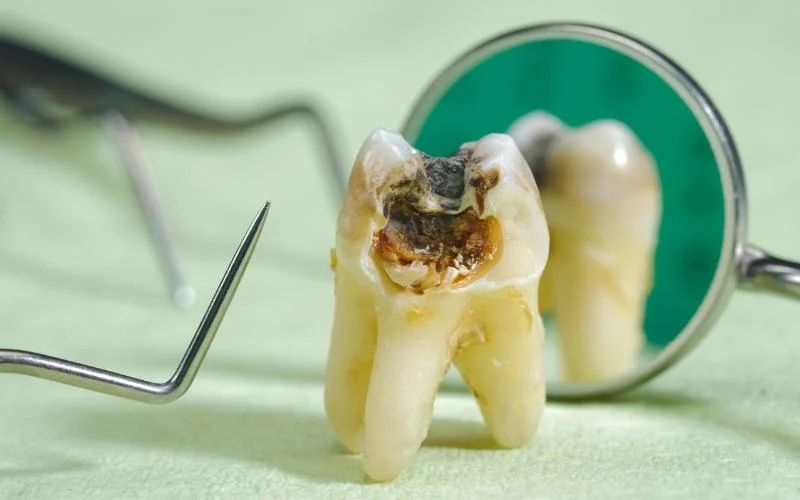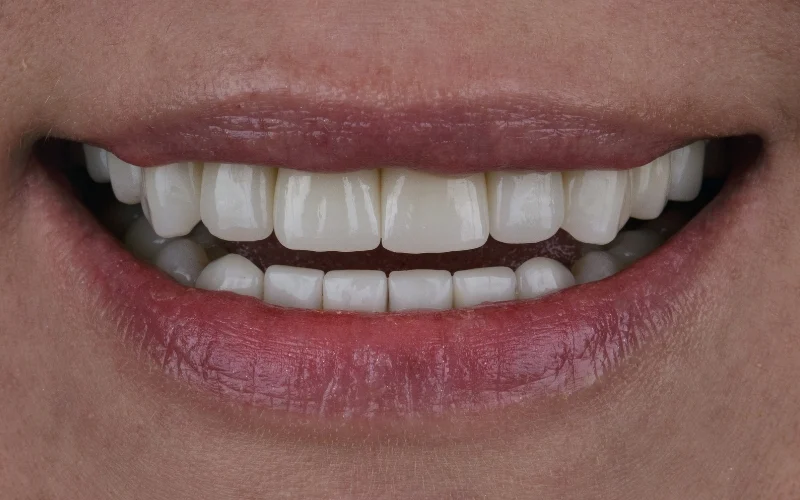Tooth extraction is a dental procedure that completely removes your tooth from its socket. “Pulling the tooth” is another name for extraction.
When to extract a tooth?
Healthcare experts prefer to keep natural teeth whenever it is possible. However, there are some circumstances where extra restorative therapies, such as fillings or dental crowns, are necessary. It can be essential to extract your tooth if it has sustained extensive damage that cannot be healed. Your dentist might suggest having your teeth removed if you have the following:
- Teeth deterioration to a greater extent
- A chipped or broken tooth
- Crowded teeth
- Severe gum problem and bone loss
- Tooth luxation or other dental damage

Who should extract your tooth?
Dentists and some dental specialists, such as periodontists and oral surgeons, can do tooth extractions. Even though general practitioners perform numerous extractions, more complex cases are often referred to oral surgeons or periodontists.

What happens before a tooth is extracted?
Your dentist will check the gums surrounding the affected tooth. Using an X-Ray, your dentist will also evaluate the bone level and the extent of the damage. You should inform your dentist about any prescription, over-the-counter, vitamins you use and any drug allergies you may have.
After gathering all the required information, the dentist will discuss the treatment and sedative options. The dentist or other dental professional also gives the anesthesia. Sedation is an excellent solution for people with dental anxiety or who wish to feel more at ease throughout their procedure.

What happens during tooth extraction?
First, a topical anesthetic is given to the gum tissue surrounding the affected tooth. Your dentist will gently loosen your tooth and carefully remove it from its socket using specialized dental instruments.
Sometimes, your dentist may need to make incisions in your gums to access a tooth that is highly decayed or has broken off at the gum line. Your tooth is extracted, and then the socket is cleaned and sterilized.
Your dentist may occasionally implant a dental bone transplant to help arrest the loss of jaw bone. Sometimes, sutures may be given to speed up the healing process.
What happens after tooth extraction?
Following the treatment, your dentist will cover the extraction site with a piece of gauze and instruct you to push firmly. This delays the bleeding and helps in the formation of a blood clot.
Clotting is a common component of recovery. It promotes healing and lessens the likelihood of having dry sockets. You can take off the gauze once the bleeding has stopped. You might continue to bleed a little for the next 24 hours.
Benefits of tooth extractions
Tooth extraction has many advantages. Most importantly, it decreases dangerous bacteria that could harm your gums and teeth. If a tooth is not restored, it might cause other problems and ruin your smile.
Your impacted tooth should be removed if you want to achieve perfect oral health. Furthermore, an extraction can instantly assist ease dental pain if your tooth is severely damaged or infected.
Types of tooth extraction
There are three types of dental extractions: simple, complex, and surgical. Simple extractions are performed on teeth visible in the mouth and can be removed with a dental elevator. Complex extractions are performed on teeth that are not visible in the mouth and need an incision to remove. Surgical extractions are performed on impacted teeth, which are teeth that have not erupted through the gum line. Impacted teeth may require minor surgery to remove.
Risks of tooth extraction
Like any surgical procedure, tooth extraction also has some risks. These could include:
- Recovery-related infection
- Dry socket
- Nerve damage.
- Puncturing of the maxillary sinus
- Prolonged recovery
Tooth extraction also has other side effects, such as swelling and discomfort. Your dentist will explain how to manage your recovery.
How long tooth extraction takes to heal?
The recovery time depends on how complex your case is. But most people quickly get back to their regular selves. You can return to your normal routine in 48 to 72 hours. However, the jawbone usually needs a few weeks to heal completely. As a result, you’ll probably need to wait a few months if you wish to replace the tooth with a dental implant.
Care after tooth extraction
After your extraction, your dentist will provide comprehensive post-surgical instructions. Here are some general guidelines for a quick recovery:
Tidy up at the extraction site. Use an antimicrobial mouthwash to rinse the area two to three times each day. Don’t brush directly over the extraction site when your dentist gives the all-clear. Brush and floss all other areas regularly.
Take all prescriptions as directed. Your dentist could advise antibiotics in addition to painkillers. You must take these medications strictly as recommended by the dentist. Over-the-counter painkillers like paracetamol and ibuprofen are another option.
Spend a minimum of two days engaging in just light activity. A faster heart rate may lead to more postoperative bleeding and discomfort. Skip the gym for the first 48 to 72 hours. Check with your dentist when it is safe to resume regular activities.

What should I eat after tooth extraction?
Stay away from crunchy and solid meals for the first few days. Stock up on soft foods like porridge, pasta, eggs, yogurt, and oats in your refrigerator and pantry. Furthermore, you should avoid drinking using straws because they could lead to dry sockets and dislodge blood clots.
Final Words
It is never pleasant to hear that you need a tooth extraction. There are times when a tooth extraction is the best option to clear up an infection, restore your smile, and get your life back on track. If your dentist recommends an extraction, ask them about replacement options.
Book a free appointment and visit Stellar Dental to get your teeth extracted. An experienced team of dental professionals at Stellar Dental will help you treat all your dental issues. Dental restorations like partial dentures, dental bridges, or dental implants can all be used to restore appearance, functionality, and overall oral health. Visit now or book an appointment by clicking the button below.









